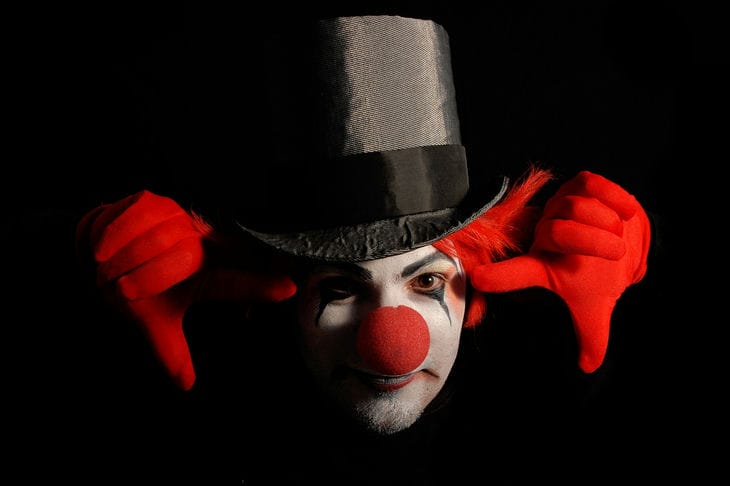Often, a child reacts with tears and panic to situations that seem normal to adults and do not pose a clear threat.
Psychologist Olga Makarova of the Federal State Budgetary Educational Institution of Higher Education "Mari State University" explained why children are afraid of clowns.
For example, a child may get scared and start crying when he sees a funny clown, and there are a number of good reasons for this.

Unknown
The clown doesn't look like dad, grandma, or friends from the yard. It's hard to make eye contact with a clown and understand that he's safe.
Misunderstanding gives rise to anxiety and excitement, the baby does not know how to communicate with the clown? What can be done and what cannot?
A huge man in a bright suit with a loud voice and a desire to immediately capture the child's attention, to attract him to games with other, equally incomprehensible heroes, seems completely alien to the child.
And then the child is more frightened not by the presence of an animator at a fun party, but by the feeling of confusion and fear. The child's first reaction may be a desire to cry, hide, ask for help, protection and support from adults.
Negative impression
The clown may resemble a character from a movie or cartoon who offended, harmed, or frightened other characters.
The first feeling a child experiences when he sees a similar character in real life is real fear. Now the scary hero is not somewhere on the screen, fighting with other cartoon characters for victory, but is in close proximity, nearby.
The child perceives the clown as a real threat to himself, projects his experience onto him and compares the information he has already received. For the child, his fear is tangible, justified and real.
He understands that he cannot "turn off" the clown and go to his mother in another room or choose another cartoon. In this case, adults should not ignore the crying and brush off the baby's strange reaction to the cheerful "uncle in a suit."
Moreover, you should not force a child to approach and play with a clown, since often the fear of clowns is caused by the fact that the child has already been at a party with an animator and the parents forced him to participate in games and competitions against his will.
Important detail
A child may also be scared not by the clown himself, but by one of the components of his costume. For example, the man who scolded the child in the yard was wearing a white and blue checkered shirt.
Or a similar cap is usually worn by a strict grandfather. The child automatically perceives the character of a kind animator as potentially dangerous, since he already has experience of communicating with people who are somewhat similar to a clown.
Unpredictability of reactions
Bright makeup and a loud voice, combined with unpredictable reactions, can also greatly frighten a child.
For example, a child approaches an animator and takes him by the hand, and the clown laughs loudly, greets him loudly, or starts to sob loudly on purpose.
Perhaps this is part of the interlude's plot, in which the clown needs to be consoled or played with to make him laugh. But the child doesn't know this.
He is used to the fact that when he takes adults by the hand, they are happy to see him and are ready to have fun with them. Receiving a different reaction, the child may get scared and not want to interact with the animator in the future.
